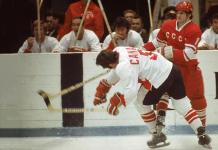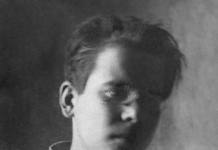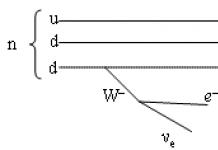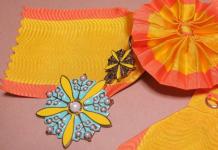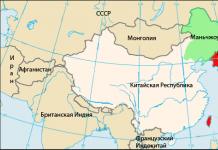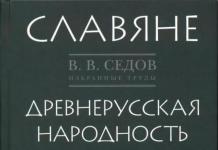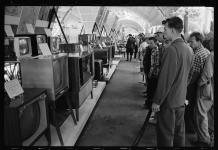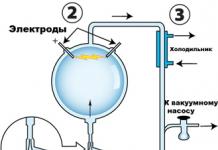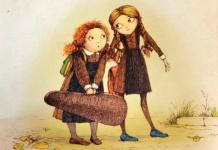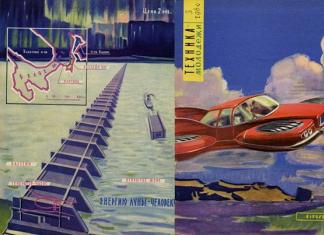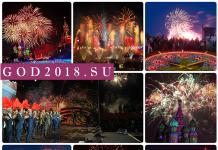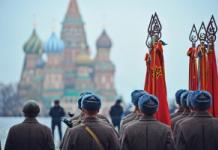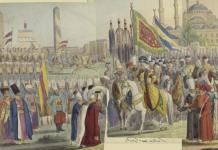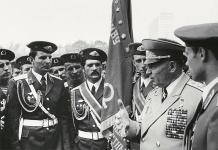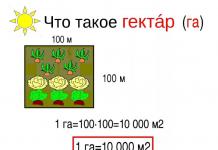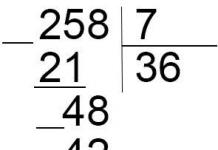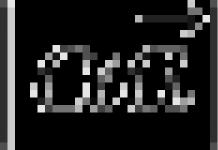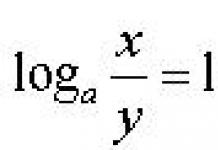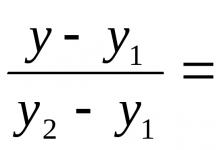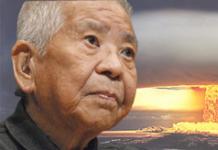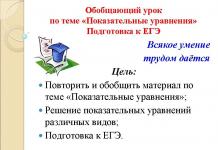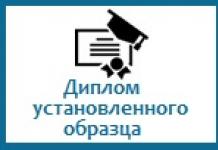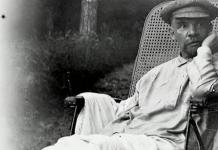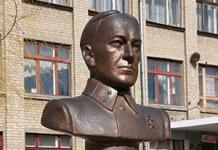Reviews Bulgarin and especially Somov in "Son of the Fatherland" after the first edition of 1827 - enthusiastic. Meanwhile, already in 1834 Belinsky wrote: "now, even as a joke, no one will put the name of Baratynsky next to the name of Pushkin." In 1842, Baratynsky's last collection, Twilight, was published. This book, according to Longinov, "gave the impression of a ghost, appearing among surprised and bewildered faces, not knowing what kind of shadow it was and what it was asking for." The death of Baratynsky also passed completely unnoticed.
Portrait of Evgeny Baratynsky, 1826
The main reason for the short duration of Baratynsky's success lay in the lack of originality and in the monotony of his works. All that he could give, he gave during his stay in Finland. Like Pushkin, Baratynsky was fond of Byronism. The heroes of his epic works strongly resemble the heroes of Byron or Pushkin in the first period of his development. But Pushkin went further, Baratynsky could create nothing but vague and vague images of dreamy and disappointed heroes. All subsequent works of Baratynsky are repetitions of the first experiments.
The main reason for the empty content of Baratynsky's muse lies 1) in the absence of original, distinctive creativity and 2) in the duality of his nature. He did not know how to completely surrender to anything. Reflection and analysis killed direct creativity and gave all works some kind of artificiality. Pushkin quite rightly called him Hamlet. This Hamlet duality made him eternally oscillate between diametrically opposed views on life, and his poems contradict one another. Baratynsky himself writes about himself: “What an unfortunate gift - imagination, too exceeding reason! What an unfortunate fruit of premature experience - a heart greedy for happiness, but no longer capable of indulging in one constant passion and getting lost in the crowd of boundless desires! " The consciousness of his powerlessness and brokenness weighed down Baratynsky, which is evident from his letters: “in me gaiety is an effort of a proud mind, and not a child of the heart. From my very childhood I was burdened by addiction and was gloomy, unhappy. In my youth, fate took me into its own hands. All this serves as food for genius; but here's the problem: - I'm not a genius. " Regarding Boris Godunov, Baratynsky writes to Pushkin: “Go, finish what you started, you, in whom the genius has settled! Build Russian. poetry to the degree between the poetry of all peoples, to which Peter the Great elevated Russia between the powers. Do it alone, that he did it alone, and our business is gratitude and surprise! "
Poets of Russia XX century. Evgeny Baratynsky
However, the undoubted merits of Baratynsky are as follows: 1) he is undoubtedly one of the few poets, thinkers and philosophers. Almost all of his poems are full of serious and deep thoughts. Baratynsky's poems are poetic expositions of the most serious philosophical topics. 2) Baratynsky's form is always well and strictly processed. His poetry is figurative, full of comparisons, assimilations, and yet clear and concise. In a few lines, he expresses the whole worldview. An example is the magnificent poem on "The Death of Goethe", where all the tasks of poetry are so clearly and beautifully expressed.
Some prominent writers estimate Baratynsky's work unusually high. For example, Joseph Brodsky repeatedly expressed the opinion that it is higher than Pushkin's.
Apr 29 2011
On February 19, 1800, Yevgeny Abramovich Baratynsky was born on the estate of the Tambov province. The mother was mainly involved in raising the child, since the father died when he was ten years old.
In December 1812, Eugene graduated from a private boarding school in St. Petersburg, then entered an elite military educational institution - the Corps of Pages. But already at the beginning of 1816, because of one rash act, Baratynsky was expelled from this building. After three years at his uncle's estate, the young man returns to St. Petersburg with the hope of his forgiveness. His friend Delvig helped Yevgeny get acquainted with writers, including Pushkin. After that, the poet's poems began to appear in local publications, but in the fall of 1818, circumstances forced Baratynsky to enter the military service in the Jaeger Regiment. Then, two years later, he was transferred to the Neishloth Infantry Regiment, based in Finland.
The poet served there for almost five years, and in 1824, thanks to the efforts of his friends, the Governor-General of Finland transferred Baratynsky to his headquarters located in Helsingfors, and also awarded him an officer rank in the spring of 1825.
In the same year, Baratynsky retired and moved to Moscow. There he marries the wealthy heiress Anastasia Lvovna, the daughter of General Engelhardt. In the Muranovo estate, according to the design of the poet himself, a luxurious house was built, where the Baratynskys lived, but they rarely appeared in the light. In 1826, the poetic story "Eda" was published, about which Pushkin spoke very commendably and called Baratynsky one of our best poets. In 1828 Baratynsky wrote the poem The Ball, and in 1831 - The Concubine. In 1835 the second edition of his poems was published.
The poet was very fond of traveling, it brought him new impressions. He visited Germany and Italy. It was just, while staying in Naples, Baratynsky fell seriously ill and died very soon. It happened on June 29, 1844. The body of Yevgeny Abramovich Baratynsky was transported home and buried in a cypress coffin in the Alexander Nevsky Lavra.
P.S. If you want to please your girlfriend or a birthday present - Delivery of flowers and beautiful bouquets in Kiev and the region seven days a week will help you.
Silhouettes of the Pushkin era. - M.: Agraf, 1999 .-- 320 p. - (Literary workshop). - S. 37-42.
Evgeny Baratynsky was considered by his contemporaries the greatest poet of Russia. His elegies and epigrams were read in literary salons. Descriptions of nature and love lyrics were admired by fellow poets. For some unknown reason, he was pushed into the background, but remains a significant figure in Russian poetry of the 19th century.
Childhood and youth
Evgeny Abramovich Baratynsky was born on February 19, 1800 in the family of retired Lieutenant General Abram Andreevich Baratynsky and Alexandra Fedorovna, nee Cherepanova. Both spouses belonged to the highest nobility. Abram Andreevich was in the retinue of the Life Guards Grenadier Regiment. Alexandra Feodorovna was educated at the Smolny Institute for Noble Maidens, she served the Empress.
For faithful service to the brothers Abram and Bogdan, the emperor presented the Vyazhlya estate in the Tambov province, where Eugene, the eldest son among eight children, was born. In 1804, the owners divided the property and the family of Abram Andreevich moved to the outskirts of Vyazhla, where a new manor house Mara was built on the edge of a picturesque ravine. The poet's early childhood passed there. The elegy "Desolation" is written in Mara, dedicated to memories.
Eugene and his brothers were educated by the Italian Giacinto Borghese, whose memory, shortly before his death, the poet dedicated the poem "Uncle-Italian". The family spoke French, and the first letters the boy sent home from the Petersburg boarding house were written in French. At the age of eight, Baratynsky began to study German in a private boarding school, at twelve he entered the Corps of Pages.

In 1810, his father suddenly died, the family returned to the estate from St. Petersburg. The preparation of her son for admission to the most prestigious institution of the Russian Empire was controlled by his mother. From letters to his mother, the poet's biographers know about his moods of that time. The teenager was distinguished by a gloomy structure of thoughts, read philosophical treatises, but was preparing for service in the navy.
The plans were not destined to come true. In the spring of 1814, for poor diligence in his studies, the young man was left for the second year. The company of Eugene's friends devoted most of their time not to lessons, but to pranks. The self-named "Society of Avengers" harassed unloved teachers with cruel jokes. The fun ended badly - friends stole from the father of one of the boys a tortoiseshell snuffbox in a gold frame along with money.

As a result, the company, by personal order of General Zakrevsky, was expelled from the Corps for theft without the right to enter other educational institutions. It was only possible to serve with the rank of a soldier. This story changed the fate of Baratynsky. He returned to the estate, thought a lot and began to write poetry.
The poet's brother, Irakli Abramovich Baratynsky, who successfully graduated from the Corps of Pages, rose to the rank of lieutenant general. He served as governor of Yaroslavl, then Kazan, sat in the Senate.
Literature
In 1819, his creations were already published in magazines. Contemporaries appreciated the work of Baratynsky for the depth of emotions, tragedy and anguish. The poet's friends, who were the first critics, praised the graceful syllable and the interweaving of verbal lace, the originality of the style.

Anton Delvig was the first to appreciate his outstanding talent and published one of Baratynsky's poems without the author's knowledge. Admired the work of the young poet, Peter Pletnev, Nikolai Gnedich,.
Baratynsky wrote lyric poems and the poem "Eda" that became famous during his service in Finland, where he spent five years with the rank of non-commissioned officer. The poet was inspired by the beauty of the wild northern nature and the charming Countess Agrafena Zakrevskaya, wife of the Governor-General of Finland Arseny Zakrevsky. Nature and emotions are woven together in the image of a stream in the poem "Waterfall".

There are several interesting facts about Baratynsky, which are usually not told about in literature lessons. For example, about the poet's monstrous illiteracy. Being fluent in Italian, French and German, the poet did not know the grammar and punctuation of the Russian language. Of the punctuation marks, he recognized only a comma. Before publication, he gave his poems to Delwig for editing.
He passed the manuscript to his wife, Sofya Mikhailovna, with a request to rewrite it to the point. But there were no dots - the poems ended with commas. Even Eugene wrote his own surname differently. He signed the first poems: "Yevgeny Abramov, son of Baratynskaya." In the publication of works and in the last collection, the variant was used - "Boratynsky".

The family name comes from the name of the Boratyn castle in Galicia. The version with the letter O is embossed on the tombstone, and the spelling with the letter A was fixed in the biography thanks to the letters of Pushkin, who, talking about the works of his friend, called him "Baratynsky".
The poetry of Yevgeny Baratynsky was criticized from different points of view. The Decembrists reproached the poet for the absence of a civic position and the excessive influence of classicism. There was a lot of romanticism in the texts for critics, but not enough for the regulars of literary drawing rooms. By the end of his life, the author himself edited his early works, removing from them the lyricism and knurled style, which also did not find understanding among the fans of the talent.
Personal life
The poet was married to Anastasia Lvovna Engelhardt, daughter of a major general. As a dowry for his wife, Yevgeny received a strong position in secular society and rich estates, in particular - Muranovo near Moscow, which became the ancestral nest of a large family, and later a museum named after. There is still a house built under the leadership of Baratynsky, the forest he planted is growing.

The young were married on June 9, 1826. However, by the standards of the 19th century, at 22, Anastasia was already considered a quite mature person. She was reputed to be intelligent, but ugly, distinguished by a delicate literary taste and a nervous character. Nine children were born in the marriage.
The young husband threw away dreams and took up the arrangement of everyday life. According to his letters from the thirties, Baratynsky seems to be a conscientious owner and father. The poems “Spring, spring! how clean the air! ", in which the poet simply enjoys life, and" The wonderful city sometimes merges ", in which he notes that" the instant creations of a poetic dream disappear from the breath of extraneous vanity. "
Death
The latest collection of poems "Twilight" was severely criticized by critics. Especially distinguished himself, with whom Baratynsky polemicized until his death. In the opinion, Belinsky is guilty of the early death of Baratynsky, since he wounded the poet's sensitive soul with a dismissive tone and offensive comparisons.

In the fall of 1843, Baratynsky and his wife set off on a trip to Europe. Visits large cities in Germany, lives in Paris for six months. In the spring of 1844, travelers sail from Marseille to Naples. At night, the poet wrote the prophetic poem "Piroscaph", in which he expressed his readiness to die.
In Naples, Anastasia Lvovna had a seizure, which greatly affected her husband. The headaches that had long tormented Baratynsky intensified. The next day, June 29, 1844, the poet died. Heart rupture is the official cause of death. In August 1845, the poet's body returned to his homeland, to St. Petersburg. Yevgeny Baratynsky was interred at the Novo-Lazarevskoye cemetery, located on the territory of the monastery.
Bibliography
- 1826 - poem "Ed"
- 1826 - the poem "Feasts"
- 1827 - collection of poems
- 1828 - the poem "Ball"
- 1831 - poem "Concubine" (original name "Gypsy")
- 1831 - story "The Ring"
- 1835 - collection of poems in two parts
- 1842 - collection of poems "Twilight"
- 1844 - "Piroscaf"
Evgeny Baratynsky (1800-1844)
Evgeny Abramovich Baratynsky was born on February 19, 1800 in the village of Vyazhle of the Kirsanovsky district of the Tambov province on the estate of his father, Adjutant General Abram Andreevich Baratynsky. “The ancient Polish family of the Korczak coat of arms, leading itself from the Zoard, the head of one of the hordes that flooded Eastern Europe in the 5th century. The surname of Boratynsky was first adopted by Dmitry - the chancellor of the Russian lands - by the name of the castle "God's Defense", built by his father ... and began to be written "de Boratyn". In the 5th tribe according to Bozhidar, Jan Boratynsky ... marked himself in the reign of Sigismund I with military exploits. Yan's great-grandson, Ivan Petrovich, became rundown, turning into a Velsky gentry, left for Russia, converted to Orthodoxy, was Verstan in the Smolensk province of estates ... "
Baratynsky received his primary education at home; his first uncle was the Italian Borghez. Baratynsky's suicide message, written two weeks before the poet's death in Naples, is dedicated to him: "To the Italian uncle." In 1811, Baratynsky was sent to receive education in St. Petersburg, where he studied at a German boarding school, and then in the page corps. In the corps, Baratynsky made friends with pages who violated not only the rules of the corps discipline, but also the basic requirements of honor. In February 1816, Baratynsky, along with another page, was expelled from the corps by imperial command, and was prohibited from ever entering military service. After being expelled for two years, Baratynsky lived with his mother in the Tambov province, periodically visiting his uncle B. A. Baratynsky in the Smolensk province. In 1818 Baratynsky went to Peterburg, where, after much trouble, in 1819 he managed to become a private in the Life Guards Jaeger Regiment. In St. Petersburg, Baratynsky made friends with A. Delvig, who was the first to appreciate his extraordinary poetic gift and even published one of Baratynsky's poems without his knowledge. Then the young Baratynsky became close friends with Pushkin, Plet-nev, Gnedich, and partly with Zhukovsky. He also got acquainted with many of the future Decembrists, in particular with Kyukhel-becker, but neither he (Baratynsky) nor Delvig were not sacred to the secrets of the then existing political society.
At the beginning of Baratynsky's literary career, his poems appeared in many Petersburg magazines and al-manakhs: "Well-intentioned", "Son of the Fatherland", "Competitor of Enlightenment and Benevolence", etc. Their originality, depth of thought and elegant style very soon brought -or famous for the young author. In 1820 Baratynsky was promoted to non-commissioned officer and transferred to the Neyshlotsky infantry regiment stationed in Finland. A stay in Finland had a significant impact on the poet's work, defining an interest in Northern European culture, which was reflected in the choice of themes and plots of Baratynsky's works (the poem "Ed", the poem "Finland").
In the spring of 1825 Baratynsky was finally promoted to officer; soon after that he retired and moved to Moscow, where on June 9, 1826 he married the eldest daughter of Major General Engelhardt - Nastasya Lvovna. “The latter was not only a gentle and loving wife, but also a woman with a delicate literary taste: the poet was often surprised at the fidelity of her critical view. He found in her encouraging sympathy for his inspirations and hastened to read to her everything that only came out of his pen. "
After his marriage, Baratynsky entered the land survey office, but soon retired. In the thirties, the poet lived for some time in Kazan, where at the same time he came Pushkin, who collected materials for the history of the Pugachev revolt. In Kazan, Baratynsky received the sad news of his death Delvig.
During his Moscow life, Baratynsky became close friends with Prince Vyazemsky, Denis Davydov, with whom he visited Dmitriev, as well as with other Moscow writers and poets: I. Kireevsky, Yazykov, Khomyakov, Pavlov. Baratynsky constantly corresponded with Pushkin and Zhukovsky.
Since the autumn of 1839, Baratynsky with his entire family - his wife and nine children lived in the village, on the Tambov estate with his mother and in the suburbs of Moscow in the village of Muranovo. The poet loved country life and enjoyed doing business, at the same time not abandoning his creative pursuits. In 1842 Baratynsky published collection of poems "Twilight-ki"... This includes works written in 1835-1842. Earlier, in 1826, a separate edition of the poem "Ed" and "Feast" appeared, in 1827 - the first collection of poems, in 1828 - the poem "Ball", in 1831 - the poem "Concubine" (the original name "The Gypsy"), finally, in 1835, a second collection of poems appeared in two parts.
In the fall of 1843, Baratynsky fulfilled a long-standing desire: with his wife and older children, he went abroad. He visited Berlin, Frankfurt and Dresden, and in the winter of 1843-1844. spent in Paris. Here the Russian poet moved in salons and met the writers Nodier, both Thierry, Saint-Beuve, Prosper Mérimée. At the request of some of his new French friends, he translated about 15 of his poems in prose into French.
In the spring of 1844 the Baratynskys left Paris for Naples. While traveling by sea, the poet wrote the poem "Piroscaf", published in 1844 in the "Contemporary". The doctor did not advise the poet to go to Naples, fearing the harmful effects of the sultry Neapolitan climate. Unfortunately, these fears were justified. Baratynsky was prone to severe headaches. June 29 (And July) 1844 in Naples Baratynsky died suddenly. A year later, his body was transported to St. Petersburg and on August 30, 1845, was buried in the Alexander Nevsky Lavra, next to the graves of Gnedich and Krylov.
Creativity of Evgeny Abramovich Baratynsky belongs to the most peculiar and specific phenomena of the Russian romantic movement. Baratynsky is a romantic, a poet of the new era, who absorbed its sorrows and sorrows, exposed the internally contradictory, complex mental world of a person of his day. For all his outward restraint, the artist put into art a great personal passion, “cramps of the heart”. Baratynsky's thought, full of anxiety and anxiety, is closely connected with a deep inner feeling. Pushkin, who shrewdly grasped the main feature of his poetry, wrote: "He is original with us - for he thinks." But then he added: "... while he feels strongly and deeply." This amazing interweaving of rationalism with the high spirituality and emotionality inherent in the romantic movement, noticed by Pushkin, amazing, grown on Russian soil, gave rise to a completely new quality of the poet's lyricism (“Thought is the subject of his inspiration.” VG Belinsky).
The poet's quest led him to create the famous book " dust”, Published in 1842 and was one of the highest ups of Russian lyric poetry of the 19th century. It was in "Twilight" - an ingenious cycle of philosophical lyrics, united by a single theme and a single author's mood, that the power and depth of Baratynsky's poetry were most fully revealed.
Nowhere do the most peculiar lyricism of thought, the passion of philosophical meditations, the atmosphere of intellectualism, high spirituality reach such tension, such amazing force, as in this book. The lyrics of "Twilight" with its harsh tragic structure were a sensitive reflection of time: behind the poems of "Twilight" there was the experience of history, the cold breath of the "Iron Age" was heard, the image of which becomes the main one in the book. The "Iron Age" is not only a "century-merchant" with its power of money and prosaic relations, but at the same time it is a generalized expression of the oppressive atmosphere of the Nikolaev reign.
After the death of Baratynsky came the long decades of almost complete oblivion of his works. And only at the end of the last and the beginning of this century, interest in the poet's work was revived again, including on the part of the leaders of the Symbolist trend, who declared him their forerunner.
Creativity Baratynsky, a great and sensitive artist, one of the creators of philosophical lyrics, had and continues to have a noticeable impact on the development of Russian poetry. Pushkin, Lermontov, Tyutchev, Blok, Bryusov - each of them in one way or another took into account Baratynsky's literary experience.

